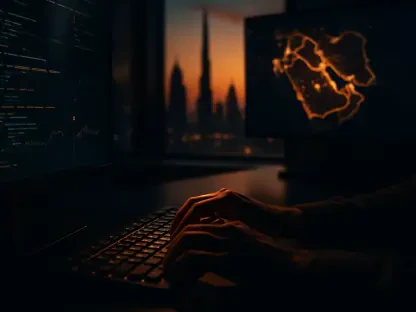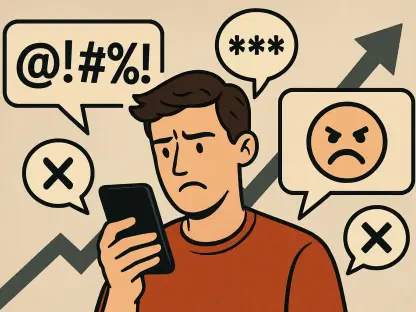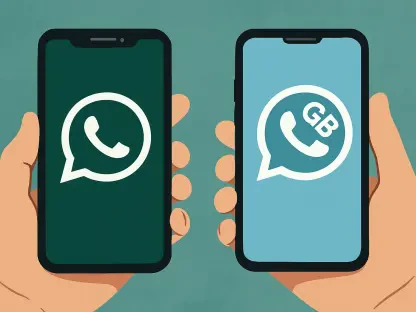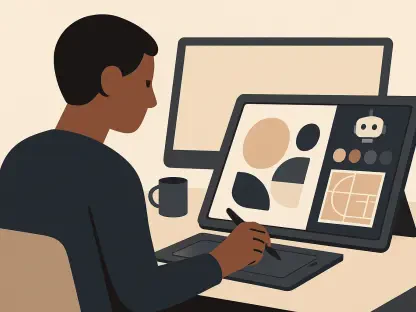In an era defined by digital interactions and online communication, public figures are increasingly finding themselves at the forefront of cybersecurity challenges. High-profile individuals, ranging from politicians to celebrities, are prime targets for cyber-attacks, primarily due to their influence and access to sensitive information. A recent incident involving Supriya Sule, a prominent NCP (Sharad Pawar) leader and Member of Parliament, underscores the pressing nature of this issue. Sule revealed that her mobile phone and WhatsApp account had been hacked, prompting her to advise the public against contacting her using these channels until the issue is resolved. This incident not only highlights the personal impact on the individual but also raises broader questions about the cybersecurity measures in place to protect those in the public eye. Tackling these cyber threats demands a combination of advanced technological solutions, public awareness, and a cohesive strategy from both governmental and non-governmental entities.
Increasing Cyber Threats Targeting Public Figures
The hacking of Supriya Sule’s mobile phone and WhatsApp account is not an isolated incident but part of a growing trend of cyber threats aimed at public figures. These attacks often seek to exploit weaknesses in communication networks and devices to gain access to confidential information, disrupt activities, or defame personalities. The motives behind these cyber-attacks can range from political sabotage to financial gains, making it all the more challenging to predict and prevent them. For instance, several global leaders have reported similar breaches, indicating that these threats are neither geographically confined nor limited to a specific sphere of influence. This trend necessitates a closer examination of the security protocols currently in place and urges the development of more robust systems to safeguard the digital privacy of public figures.
The repercussions of such cyber breaches extend beyond the immediate personal and professional inconveniences faced by the affected individuals. They can lead to significant political and social upheaval, as false information or unauthorized access to sensitive communications can be leveraged to manipulate public opinion or interfere with governmental functions. Moreover, the public disclosure of such breaches often causes a loss of trust, not only in the individual but also in the broader mechanisms meant to ensure cybersecurity. The conversations surrounding Sule’s hacking incident emphasize the need for better educational campaigns about cybersecurity practices among public figures, their teams, and even the general population to foster a more resilient digital environment.
Enhancing Cybersecurity Measures for Public Figures
To combat the rising tide of cyber threats, public figures are increasingly investing in advanced cybersecurity measures and adopting best practices to protect their digital communications. Technologies such as end-to-end encryption, multi-factor authentication, and sophisticated firewalls are becoming standard among those in the public eye. These measures aim to create multiple layers of security, making it more challenging for cybercriminals to breach digital defenses. Moreover, cybersecurity experts are now part of many public figures’ teams, providing real-time monitoring and response services to detect and counteract potential threats swiftly. While these measures significantly improve security, the ever-evolving nature of cyber threats means that continuous updates and advancements in technology are crucial.
In addition to technological solutions, there is a growing emphasis on training and awareness programs designed to educate public figures and their staff about the latest cybersecurity threats and best practices. For instance, many politicians and high-profile individuals now undergo regular cybersecurity training sessions that cover topics such as recognizing phishing attempts, securing personal devices, and managing social media privacy settings. These educational initiatives aim to reduce human error, often the weakest link in cybersecurity defenses. The heightened focus on awareness and education underscores the understanding that a comprehensive cybersecurity strategy extends beyond just technology; it also involves fostering a culture of vigilance and informed digital behavior.
The Role of Government and Cybersecurity Legislation
In today’s digital age, public figures are facing increasing cybersecurity threats. High-profile individuals, such as politicians and celebrities, become attractive targets for cyber-attacks because of their influence and access to sensitive information. A recent case involving Supriya Sule, a notable NCP (Sharad Pawar) leader and Member of Parliament, highlights this growing concern. Sule announced that her mobile phone and WhatsApp account had been compromised, prompting her to urge the public to avoid reaching out to her through these channels until the issue is resolved. This incident not only underscores the personal toll on those affected but also raises significant questions about the adequacy of cybersecurity measures protecting public figures. Addressing these threats requires a multifaceted approach, combining advanced technology, public education, and coordinated strategies from both governmental and non-governmental organizations. Only through such comprehensive efforts can we hope to safeguard our public figures from the relentless tide of cyber threats.









